When I was 12-years-old, I took guitar lessons from a guy who taught me how to read music through basic jazz songs. I learned a great deal from these lessons including triads, however, I didn’t practice them enough because I was too young to appreciate it.
I wound up quitting, and while I could call it a mistake, it was just the choice that I made at the time. Now, I’m getting proper instruction again and my teacher told me I needed to learn the major and minor triads all over the guitar neck. But why is this important?
Generally speaking, triads are important to learn on the guitar because they’re the building blocks of musical harmony. Learning triads makes scales, arpeggios, voice leading, rhythm, and lead guitar much simpler. They also have the added benefit of helping you understand & navigate the fretboard.
Essentially, this is the TLDR version of why it’s important to learn the triads. You know, I always knew that I needed to learn the triads, in fact, it was even on my list. But it took the instruction of someone who I respected to get me to actually do it. Let’s talk about how and why it helps.
14 Reasons Why Triads Are Important to Learn on Guitar
The little bolded paragraph I just mentioned isn’t enough when explaining why learning the major and triads is so important.
I’ve only been working on this for a couple of months at the time of this blog post, and I can already see how this is going to help my playing.
It already made my subscription to JamPlay worth it, as far as I’m concerned. If you’re not interested in that, check out my memorization guide which will help you a lot.
1) You’ll Gain A Better Understanding Of the Building Blocks of Harmony
![Triads of C Major on Guitar - Why Are Triads Important To Learn on Guitar [ANSWERED]](https://travelingguitarist.com/wp-content/uploads/2022/02/Triads-of-C-Major-on-Guitar-Why-Are-Triads-Important-To-Learn-on-Guitar-ANSWERED.jpg)
If you know the C Major scale like the back of your hand, including the chords, their inversions, and how it looks on the guitar neck, you’re further ahead than 98% of other guitarists.
If you’ve read my article on how to find the key signature of any song on guitar, you’ve heard me mention this idea before. The C Major scale is the foundation of Western music theory. It’s the scale to which everything else is compared and contrasted.
Adding a 9th to a C Major chord will make a lot more sense, as will adding a #4 to make it sound Lydian. To put it simply, mastering this one thing will open many other doors, and it’ll make it easier too.
2) Constructing Chords and Arpeggios on the Fly
![C Major 7 to A Minor - Why Are Triads Important To Learn on Guitar [ANSWERED]](https://travelingguitarist.com/wp-content/uploads/2022/02/C-Major-7-to-A-Minor-Why-Are-Triads-Important-To-Learn-on-Guitar-ANSWERED.jpg)
One thing I’ve noticed right away about learning the major and minor triads is that it’s made it a lot easier for me to make my own chords on the fly. And this applies to arpeggios too.
Like these Reddit users pointed out, having memorized major and minor triads all over the neck gives you a toolbox of ideas to work with right off the bat.
Most songs are made up of major and minor triads, so if you’ve memorized them, you already understand so much about the song.
You know why it sounds the way it does, and more importantly, you have a better idea of what to play over it. For example, if the song has an A Major chord in it, you’ll be able to play an A Major triad in 10+ different ways.
3) To Learn Countless Ways to Use Triads and Inversions For Melodies and Solos
![C Aug + A Minor Marty Friedman - Why Are Triads Important To Learn on Guitar [ANSWERED]](https://travelingguitarist.com/wp-content/uploads/2022/02/C-AugA-Minor-Marty-Friedman-Why-Are-Triads-Important-To-Learn-on-Guitar-ANSWERED.jpg)
Similar to how the C Major scale relates to the rest of harmony, a lot of the benefits bleed into each other because it’s all related, and it all builds off each other.
The C Major chord is the most basic chord ever, but you can use 1st and 2nd inversions to make it sound cooler. You can use the triads for melodies, rhythm sections, or for your solos.
As a metal fan, I would often wonder how lead guitarists would come up with an ascending pattern like Marty Friedman’s solo in “Symphony of Destruction.”
The pattern that starts at 02:32 is just a C Augmented triad up to an A Minor triad that finally goes up into several cool little E Harmonic Minor licks. (My analysis could be wrong, but I’m fairly certain it’s correct).
Regardless, learning the triads will make a lot of the music out there a lot less mysterious. Granted, the triads and scales used in this lick aren’t just basic major/minor triads and a major scale, but learning the triads will help you learn this stuff.
4) Familiarizing Oneself With Chord Tones
![Chord Tones and Non-Chord Tones - Why Are Triads Important To Learn on Guitar [ANSWERED]](https://travelingguitarist.com/wp-content/uploads/2022/02/Chord-Tones-and-Non-Chord-Tones-Why-Are-Triads-Important-To-Learn-on-Guitar-ANSWERED.jpg)
Learning the triads will also help you a lot with chord tones. I’m a bit embarrassed by this, but earlier, I thought that just knowing what key you’re in was enough to jam along with a lot of songs.
It’s true that It’s enough to figure things out, especially for simple pop songs that aren’t harmonically complicated, but there’s way more out there to learn.
Understanding the location – and the importance – of the 3rd or 5th will give you a much better idea of how to make better solos and melodies. Having the ability to really bring out the color of chords with your playing is a great skill.
5) A Great Way to Move Away from Moving Up and Down Scales
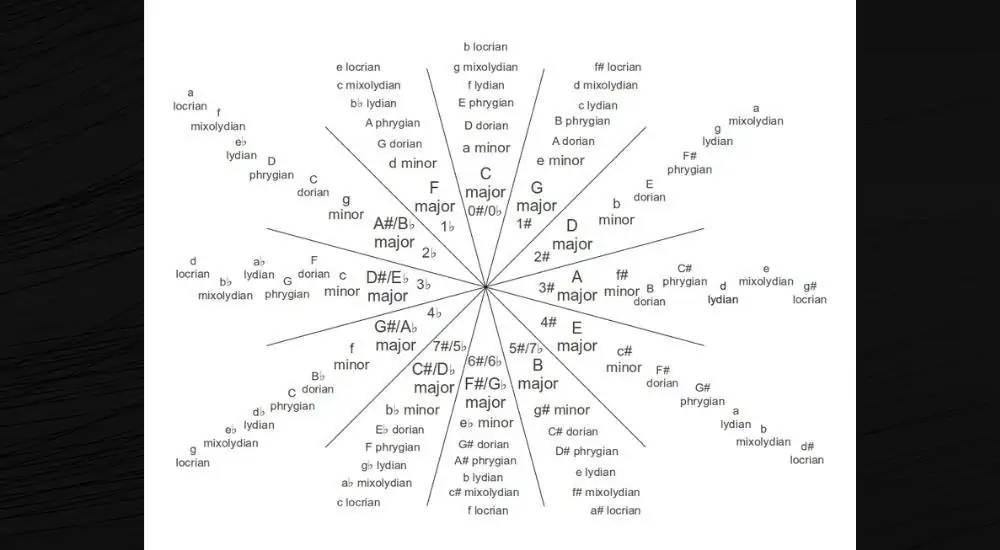
Triads are a great way to move away from going up and down the scales that you know. I’m also guilty of this, big time.
For me, learning the different shapes of the modes helped me because it gave me a bunch of patterns of the major scale to play with. I talked about it a bit more in my guide to jamming by yourself.
But I got sick of this quickly. My instructor told me that arpeggiating the changes – something he recommended I learn from Mark Levine’s Spiral-Bound Jazz Theory Book – would help me more than anything else I could learn.
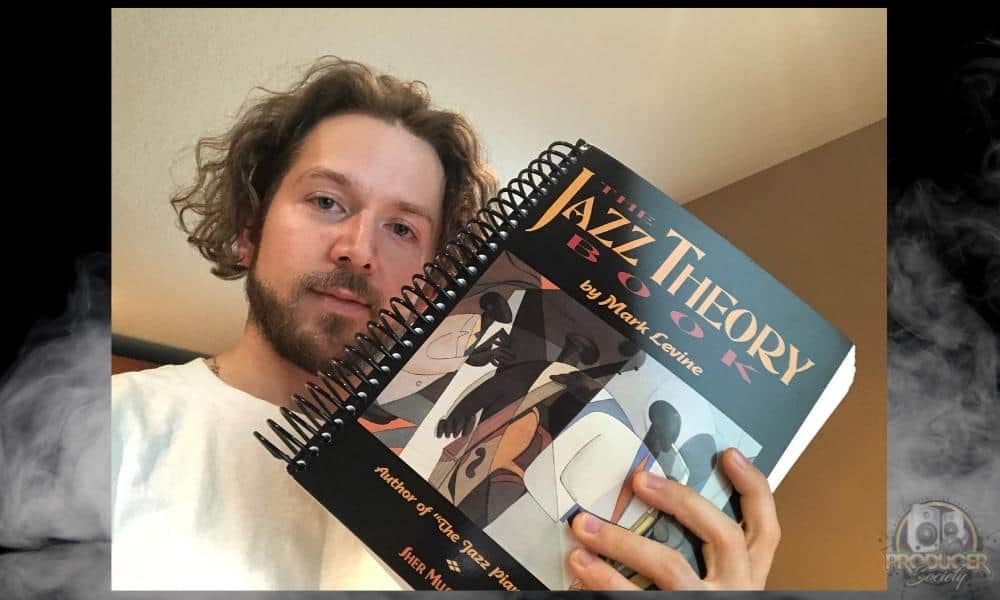
Not only can you use simple triads to jam along with a piece of music or add to it in a meaningful way, but you can also make little changes to them along the way.
6) You Can Embellish and Modify the Triads
![Lydian Chords - Why Are Triads Important To Learn on Guitar [ANSWERED]](https://travelingguitarist.com/wp-content/uploads/2022/02/Lydian-Chords-Why-Are-Triads-Important-To-Learn-on-Guitar-ANSWERED.jpg)
There’s a lot you can do to make a simple triad sound a lot cooler. For instance, you could add chromatic passing tones, or you could throw in a flat fifth.
You could add a #4th to a major triad to give it a Lydian sound, or you could add a #7 to a minor triad and give it a harmonic minor vibe. As I said earlier, the triads are the building blocks of Western harmony.

You can add to them and modify them to get entirely different sounds. Additionally, you’ll learn a lot about the instrument you’re playing in the process which brings me to my next point.
7) A Great Way to Memorize The Fretboard
![Triads - Why Are Triads Important To Learn on Guitar [ANSWERED]](https://travelingguitarist.com/wp-content/uploads/2022/02/Triads-Why-Are-Triads-Important-To-Learn-on-Guitar-ANSWERED.jpg)
Learn the triads and know where the root is in each one. In addition to familiarizing yourself with the foundation of Western harmony, you’ll also learn the notes of the fretboard in the process.
I’ve been doing the exact same thing. I learn all the triads on the top three strings and then I make sure I emphasize where the root is.
I play it twice, that way I solidify it in my brain a bit more. Do the same thing. Invert the chods but keep the tonal center in the same place. Learning the most basic triads, but in entirely different ways, means you’ll truly learn them.
![C Major 1st Inversion - Why Are Triads Important To Learn on Guitar [ANSWERED]](https://travelingguitarist.com/wp-content/uploads/2022/02/C-Major-1st-Inversion-Why-Are-Triads-Important-To-Learn-on-Guitar-ANSWERED.jpg)
I think it’s important to be honest with yourself about it too. You could learn 6 different ways to play the C Major triad on the top E-strings and call it a day. Or you could learn their inversions as well.
A wise man told me that really knowing this one chord like the back of your hand, will help you a lot more than knowing 5% of 100 other chords and scales.
Know one thing at 100%, not 100 things at 5%. This is a mistake that I made and I’m going to do my best not to make it again.
8) Improves Improvisation and Songwriting Skills
![Common Chord Progressions - Why Are Triads Important To Learn on Guitar [ANSWERED]](https://travelingguitarist.com/wp-content/uploads/2022/02/Common-Chord-Progressions-Why-Are-Triads-Important-To-Learn-on-Guitar-ANSWERED-1.jpg)
As I said earlier, a lot of this is connected. I don’t think it’s unreasonable to assume that memorizing the notes of the fretboard will help your improvisation and songwriting skills (here are some of my helpful songwriting tips for beginners by the way).
I don’t think it’s a crazy idea either to think that memorizing all of the inversions and positions of the major/minor triads will help your improvisation and songwriting skills. The same thing could be said about using the FL Studio piano roll too.
![Chord Inversions - Why Are Triads Important To Learn on Guitar [ANSWERED]](https://travelingguitarist.com/wp-content/uploads/2022/02/Chord-Inversions-Why-Are-Triads-Important-To-Learn-on-Guitar-ANSWERED.jpg)
This could probably be said about a lot of things in life, but it’s the same with music theory too. You can easily make connections between a lot of the concepts and ideas.
One can easily inform the other. I think Jens Larsen put it nicely when he talked about how you can use one triad with others.
![Jens Larsen on the Triads - Why Triads Are Important To Learn on Guitar [ANSWERED]](https://travelingguitarist.com/wp-content/uploads/2022/02/Jens-Larsen-on-the-Triads-Why-Triads-Are-Important-To-Learn-on-Guitar-ANSWERED.jpg)
9) Learning Triads Makes It Easier To Jam With Rhythm Guitarists
![Two Guitarists Rhythm and Lead - Why Are Triads Important To Learn on Guitar [ANSWERED]](https://travelingguitarist.com/wp-content/uploads/2022/02/Two-Guitarists-Rhythm-and-Lead-Why-Are-Triads-Important-To-Learn-on-Guitar-ANSWERED.jpg)
I’m not an expert musician by any means, but I’ve played with other guitarists before who don’t know what a triad is, what a key signature is, or what chords they’re playing. I’m not here to be mean or condescending to people.
It’s just not as easy to play with people when they don’t know what chords they’re using, and more importantly, when you don’t know either. It’s kind of like the blind leading the blind. Nobody knows what’s going on or what to do.
But if you know how to play the notes of the chords that the other guitarist is playing, you’ll be in a much better position.
Even better if you know how to play those same chords 2 octaves up so you don’t take up too much room. That way there’s enough space for a singer, a bassist, and probably even some drums too.
10) You Can Make Room for Other Sounds and Instruments
![Instruments in Frequency Spectrum - Why Are Triads Important To Learn on Guitar [ANSWERED]](https://travelingguitarist.com/wp-content/uploads/2022/02/Instruments-in-Frequency-Spectrum-Why-Are-Triads-Important-To-Learn-on-Guitar-ANSWERED.jpg)
And that brings me to the next point, which is that you can easily make room for other sounds and instruments. I used to do this exact same thing all of the time. I only knew one way of playing an A Major 7 chord and that’s fine for a bit.
But if you want to make room for other instruments, you’ll have to play it in a slightly different way. If you’re taking up too much room on the frequency spectrum, the music won’t sound as good.
I’ve got a few examples and images to help you understand what I mean if you haven’t heard of this before.
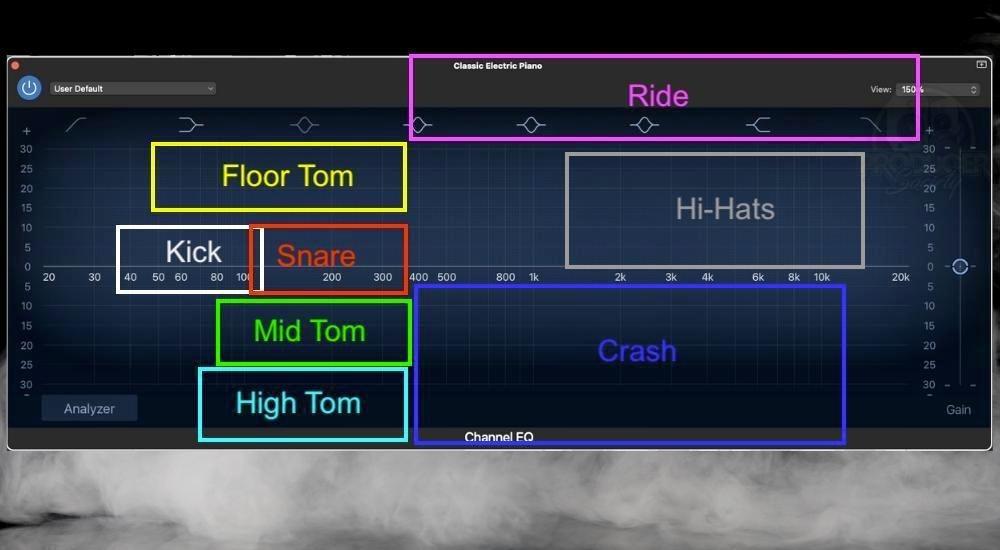
By playing the chords or the notes at a much higher or lower octave, you use different frequencies and therefore take up more or less space. The same thing goes for the guitar and every other sound and instrument.
This is something that the guy from Music Is Win talked about on his channel using Randy Rhoad’s “On the Mountain” riff as an example.
11) They Improve Your Voice Leading
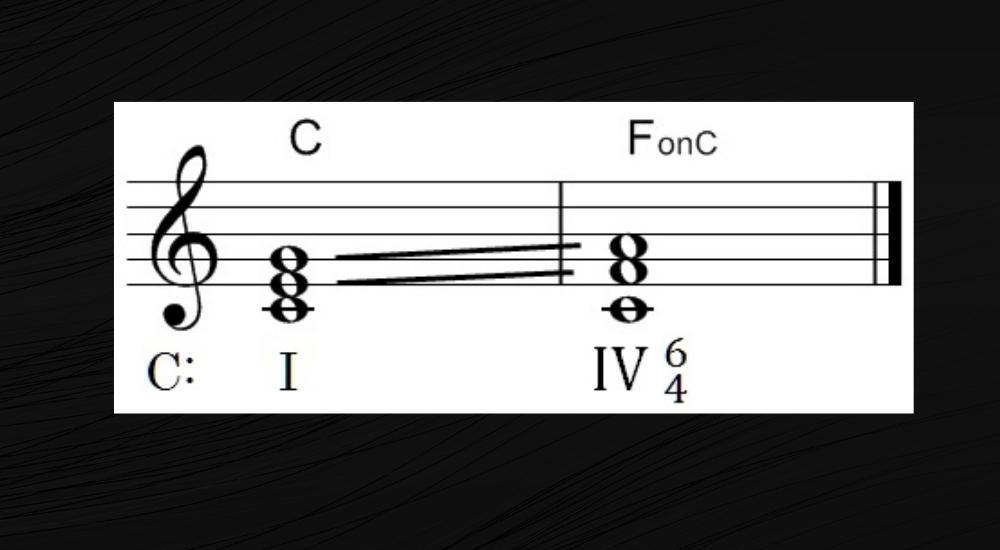
Voice leading refers to the way you move from chord to chord. It’s how you transition from one melody or chord to another. This is related to what I talked about earlier with chord tones and non-chord tones.
Having a better understanding of where the chord tones are and where they aren’t will help you move from chord to chord. As a simple example, If you have a C Major to G7 chord progression, there are many things that you could play.
A C Major 7 arpeggio comes to mind, and not that it’s the best possible option, but if you’re familiar with triads and chord tones, you know why it sounds good, which is that the C Major 7 arpeggio contains chord tones of both the C Major and G7 chords.
As you become more and more familiar with the triads, you’ll have a better idea of how to create nice melodies. And you’ll understand why they sound nice, which I think is also very important.
12) You Learn to Link or Connect Major and Minor Triads
![Turning C Major into C Minor - Why Are Triads Important To Learn on Guitar [ANSWERED]](https://travelingguitarist.com/wp-content/uploads/2022/02/Turning-C-Major-into-C-Minor-Why-Are-Triads-Important-To-Learn-on-Guitar-ANSWERED.jpg)
Another cool aspect of learning the triads is that you learn how to inform your understanding of other chords, just by learning one. This relates to what I said earlier about the building blocks of harmony.
A great example is the C Major triad, C-E-G. Well, if you know how to play it in 6 different ways on E, B, and G strings, making a C minor triad from that will get much easier. To make it a C minor triad, you just have to flat the 3rd, which is E in this case.
So just by learning that one triad like the back of your hand, you learn so much about others.
![C Major to C Augmented - Why Are Triads Important To Learn on Guitar [ANSWERED]](https://travelingguitarist.com/wp-content/uploads/2022/02/C-Major-to-C-Augmented-Why-Are-Triads-Important-To-Learn-on-Guitar-ANSWERED.jpg)
Take it a step further and raise the G by a semi-tone to make it an augmented 5th. Now you’ve got a C Augmented triad all over the neck. You can just keep going with this stuff all day.
13) Easy Way to Learn Multiple Voicings Of One Chord
![Voicings of C Major - Why Are Triads Important To Learn on Guitar [ANSWERED]](https://travelingguitarist.com/wp-content/uploads/2022/02/Voicings-of-C-Major-Why-Are-Triads-Important-To-Learn-on-Guitar-ANSWERED.jpg)
I don’t think it’s hard to imagine how this will help you. As I said earlier, there are certain ways of playing a chord that just sounds way cooler and more interesting.
For instance, I think that most people probably prefer the open-string versions of the C Major scale chords. They tend to sound a lot more musical than the bar-chord versions.
Learning the triads will help with this, as you’ll have a much bigger toolbox to work with, rather than just one single hammer.
14) Improves Rhythm and Lead Guitar Playing
You’re probably getting the picture now. All of this is going to help you as a guitar player in innumerable ways. Knowing what I know now, I probably would’ve spent my time differently.
If I could go back and spend way less time practicing scales and alternate picking exercises and focus on triads instead, I’d go that route. I used to spend hours of my time trying to master Andy James guitar solos, and it just wasn’t happening.
But it is what is. In many ways, I think that learning the triads, for me at least, is the first step toward becoming a real musician and not just a guitar operator.
Other Articles You May Be Interested In
- How To Memorize Guitar Triads In The Simplest Way Possible
- What Guitar Chords Are Sad? [With Examples & Explanation]
- What Are the Most Beautiful Guitar Chords? [ANSWERED]
- Why Is It Important To Learn Chords on Guitar? [SIMPLE]

Important Things to Note About Learning Triads on Guitar
1) This Will Probably Take A Long Time
I’m not really sure how long this will take, considering I’m learning myself. But I imagine it’s also one of those things where there isn’t really a clear finish line. I’ve heard way better guitarists than me say that they still practice them daily, even after decades.
That said, I’ve only been at it for a couple months now and I can already see the benefits in my playing. It has made it easier to make cool melodies and chord progressions, and it has improved my improvisation skills too, among many of the other things I’ve mentioned.
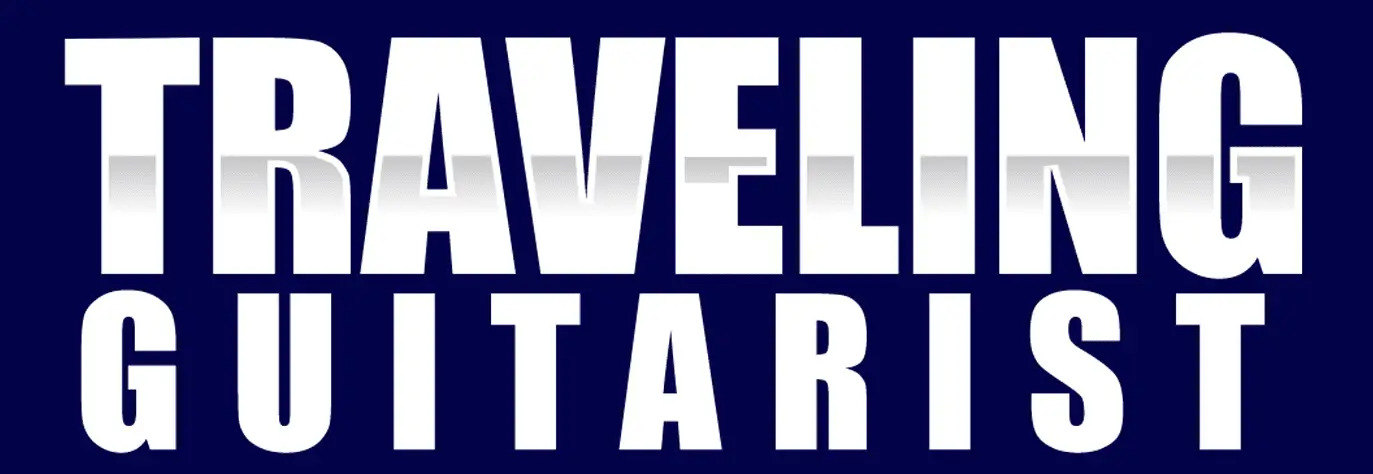
 Written By :
Written By :
